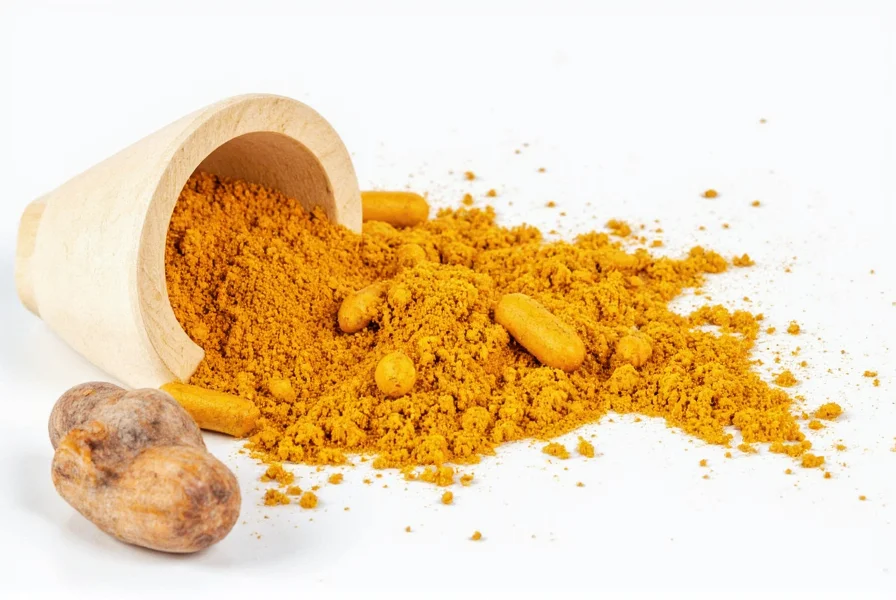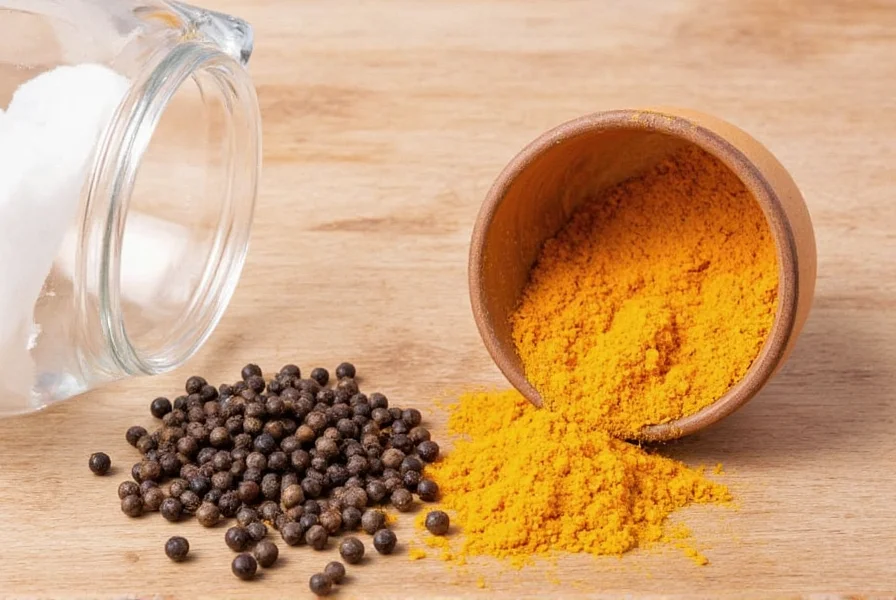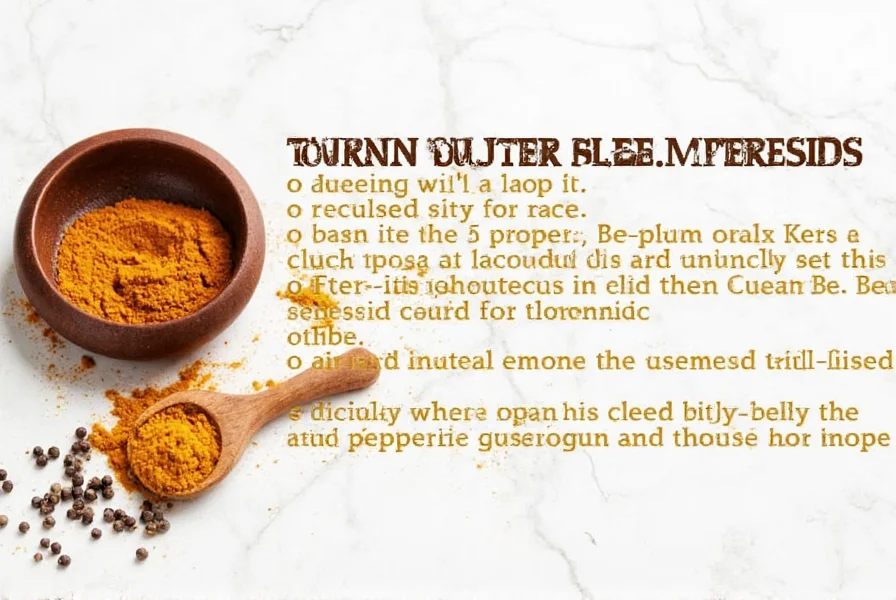For decades, traditional medicine systems have recognized turmeric's therapeutic potential, but modern science revealed a critical limitation: curcumin, turmeric's primary active compound, has extremely poor bioavailability when consumed alone. This is where the strategic addition of black pepper creates a powerful synergy. Piperine, the bioactive component in black pepper, inhibits certain metabolic enzymes and slows the breakdown of curcumin in both the liver and intestinal wall. The result? Blood levels of curcumin remain significantly higher for longer periods when combined with piperine.
The Bioavailability Breakthrough
Curcumin's therapeutic promise has long been hampered by its pharmacokinetic challenges. When consumed without enhancement, curcumin demonstrates:
- Low solubility in water
- Rapid metabolism and elimination
- Poor intestinal absorption
- Systemic bioavailability of less than 1% in many studies
A landmark 1998 study published in Planta Medica demonstrated that when 20mg of piperine was combined with 2g of curcumin, the bioavailability of curcumin increased by an astonishing 2,000%. This isn't merely theoretical—subsequent research has consistently confirmed that piperine significantly enhances curcumin absorption in human subjects.

Scientific Evidence Review
Multiple clinical investigations have examined the turmeric-black pepper combination:
| Study | Findings | Significance |
|---|---|---|
| Shoba et al. (1998) | 2,000% increased bioavailability with piperine | Established foundational evidence for the combination |
| Sanmukhani et al. (2014) | Curcumin with piperine showed comparable antidepressant effects to fluoxetine | Demonstrated clinical efficacy for mood support |
| He et al. (2015) | Enhanced anti-inflammatory effects in arthritis models | Validated improved therapeutic outcomes |
While the bioavailability enhancement is well-established, research continues to investigate the optimal ratios and dosages for specific health applications. Most clinical trials use standardized curcumin extracts (typically 95% curcuminoids) combined with 5-20mg of piperine.
Practical Considerations for Supplement Selection
Not all turmeric and black pepper supplements deliver equal benefits. When evaluating products, consider these evidence-based factors:
- Standardized extracts: Look for products specifying curcuminoid content (usually 95%)
- Piperine concentration: Effective doses range from 5-20mg per serving
- Ratio consistency: The most researched ratio is approximately 100:1 (curcumin to piperine)
- Third-party testing: Verification of ingredient accuracy and purity
Timing matters too—taking turmeric black pepper supplements with a meal containing healthy fats can further enhance absorption, as curcumin is fat-soluble. Many experts recommend splitting the daily dose rather than taking it all at once for sustained blood levels.

Safety Profile and Potential Interactions
Turmeric and black pepper supplements are generally well-tolerated at recommended doses, but certain considerations apply:
- Digestive effects: High doses may cause mild gastrointestinal discomfort in sensitive individuals
- Blood thinning: Both turmeric and piperine have mild anticoagulant properties—consult a healthcare provider if taking blood-thinning medications
- Drug interactions: Piperine may affect how the body metabolizes certain medications by inhibiting CYP3A4 and P-glycoprotein
- Pregnancy considerations: High-dose supplements are not recommended during pregnancy without medical supervision
The U.S. Food and Drug Administration recognizes both turmeric and black pepper as generally safe (GRAS status), but therapeutic supplement doses exceed typical culinary usage. Most clinical studies use doses of 500-2,000mg of curcumin with 5-20mg piperine daily, typically divided into two doses.
Realistic Expectations: What the Research Shows
While the turmeric-black pepper combination shows promise for several health applications, it's essential to maintain realistic expectations based on current evidence:
- Inflammation management: Strong evidence for reducing inflammatory markers like CRP and TNF-α
- Joint health: Multiple studies show benefits for osteoarthritis and rheumatoid arthritis symptoms
- Mood support: Emerging research suggests potential benefits for depression
- Antioxidant effects: Well-documented protection against oxidative stress
It's crucial to understand that turmeric black pepper supplements are not magic bullets. They work best as part of a comprehensive approach to health that includes proper nutrition, exercise, and other lifestyle factors. The scientific community continues to investigate optimal applications, with ongoing research exploring potential benefits for cognitive health, metabolic function, and more.











 浙公网安备
33010002000092号
浙公网安备
33010002000092号 浙B2-20120091-4
浙B2-20120091-4